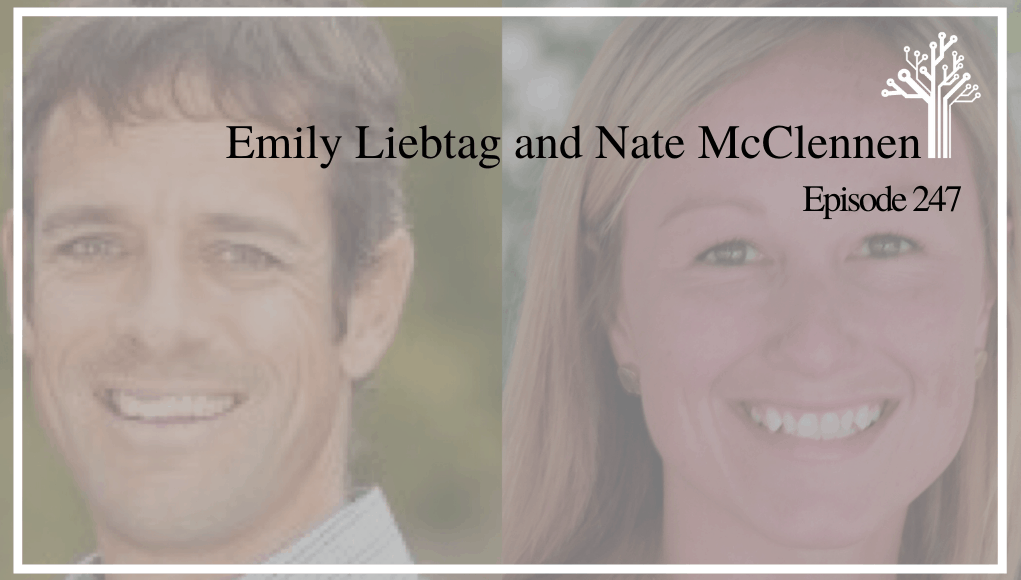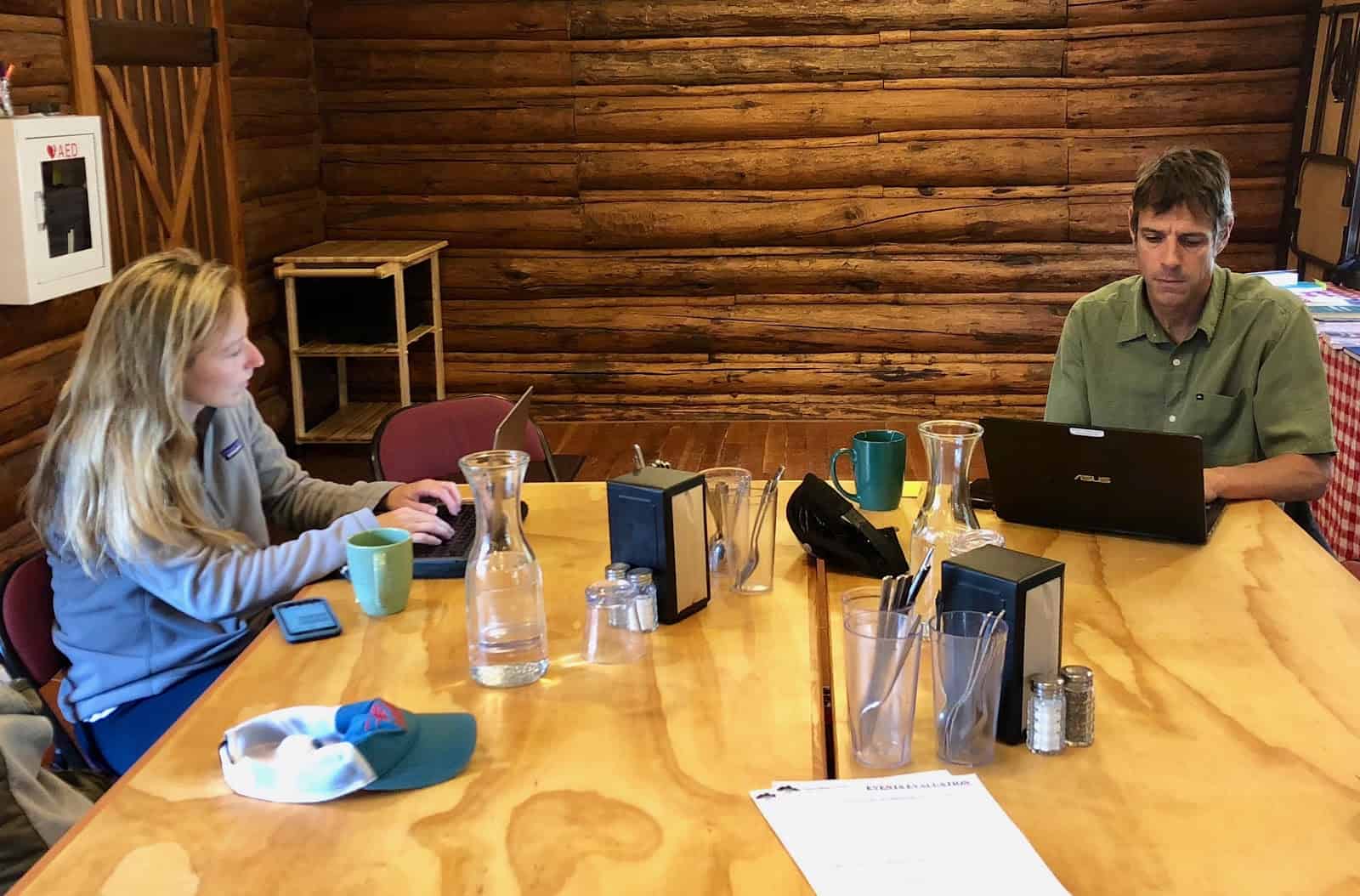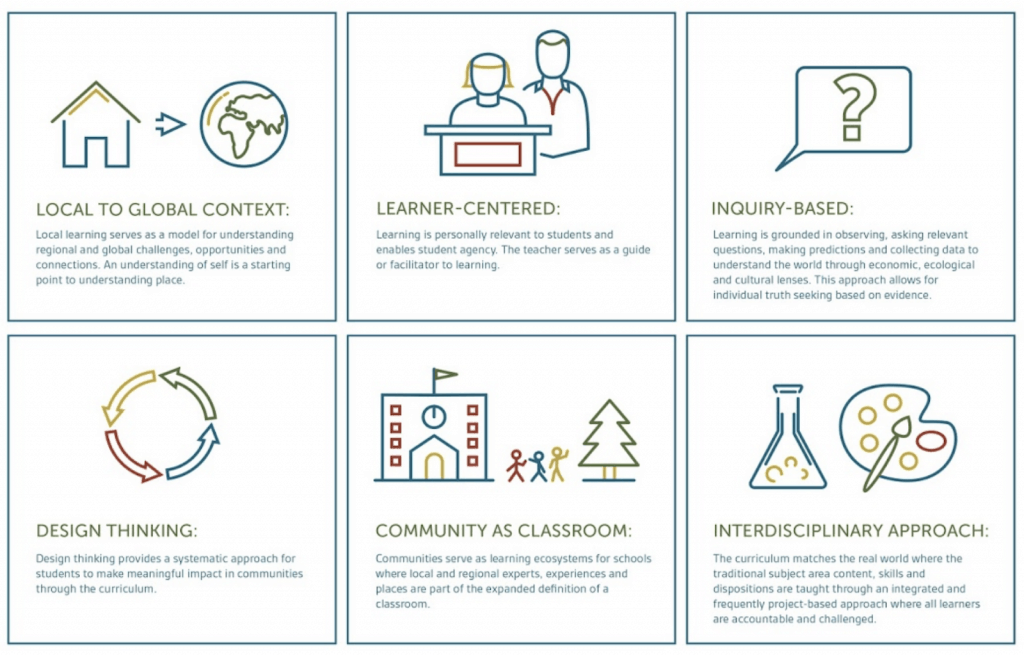Podcast: Emily Liebtag and Nate McClennen on the Power of Place

“If we were lucky enough as children to be surrounded by grown-ups who loved us, then our sense of wholeness is not just the sense of completeness in ourselves but also is the sense of belonging to others and to our place; it is an unconscious awareness of community, of having in common. It may be that this double sense of singular integrity and of communal belonging is our personal standard of health for as long as we live.” –Wendell Berry
After four years of sharing stories about The Power of Place, the co-authors of a new book see place-based learning opportunities everywhere they look.
Tom interviewed his co-author Emily Liebtag (@EmilyLiebtag), new CEO of Boundless. On the day of the interview, she visited Colonial Drug Store 60 years to the day that nine young African American men posed a sit in to fight for their rights. The Town of Chapel Hill dedicating a plague to their contribution. For Emily, it was a reminder of the history of the fight for equity that is all around us. The ceremony sparked a morning of learning about the place she now calls home.
The other co-author Nate McClennen (@nmcclenn), Vice President for Education and Innovation, Teton Science Schools (@tetonscience), noticed on his drive to work that he had to put on sunglasses for the first time this year as the sun poked through a notch in the mountains as he drove up the Snake River valley reminding him of the change of the seasons.
As examples of schools that embrace place, Emily mentioned Purdue Polytechnic in Indianapolis and Center One in Charlottesville. Nate discussed Roscoe ISD, a rural Texas district that opened places for businesses to start.
The book took shape during a writing retreat in September 2018 at the log cabins of Murie Ranch (below) in Moose Wyoming, home of the American environmental movement.

What is place-based education?
Place-based experiences increase engagement, learning and community impact. The Teton Science approach is interdisciplinary and emphasizes three lenses: economy, ecology, and culture.
Why place now? “Many students are disengaged and not providing an experience that connects with meaning,” said McClennen.
“Connecting to the community makes them feel like they can make a difference, come to understand what they care about and who they want to become,” added McClennen.
The way place contributes to agency, equity, and community are the three themes of the book.
The book is organized around six design principles:
-
- Learner-centered: everyone experiences place differently; everyone deserves the right to build an identity rooted in place; everyone can make a difference.
- Local to global: starting local allows students to build on prior knowledge and connect to global issues.
- Inquiry-based: understanding what is in the world; staying curious and making observations.
- Design thinking: a creative problem-solving approach that allows young people to become solutionaries
- Community as classroom: every place offers something to teach; every place is part of an ecosystem; learning wherever it happens should count;
- Interdisciplinary: using project-based learning, skills and dispositions are learning through real world learning not in isolation.

The book was written for practitioners but parents and community leaders will enjoy the pictures of what school could be.
Key Takeaways:
[1:42] Emily shares one of her favorite place-based education moments from the last several weeks.
[4:04] Nate also shares a recent favorite place-based education moment that comes to mind for him.
[6:06] Tom shares his enthusiasm about Crosstown High centered in Crosstown Concourse in Memphis, Texas.
[7:38] When did Emily learn about Crosstown High and the benefits it brings to students.
[11:06] Emily shares the origin story of The Power of Place as well as her favorite part about working on it.
[12:40] Nate speaks about his career at Teton Science Schools and how he became involved in writing The Power of Place with Emily and Tom.
[13:42] Tom speaks about his experience joining the Teton Science Schools’ Advisory Board.
[14:18] Nate shares his definition of place-based education.
[16:15] Nate speaks about the power of place.
[17:25] Emily shares why place-based education is becoming increasingly important in the global conversation.
[18:51] Tom speaks about how the shift to digital and the strong focus on standards have made learning more sterile.
[20:58] Nate highlights how the themes of agency, equity, and community, connect The Power of Place together.
[22:24] Emily continues the conversation around the themes that connect the book and how all learners experience place in a different, unique way.
[23:25] Tom shares a recent experience of his at Latitude High and the different ‘place’ can make.
[24:18] Nate shares a conversation between him and Tom about the importance of how connecting to place brings everyone together.
[25:22] Nate explains what local-to-global means.
[27:18] Tom and Nate explain what inquiry-based relates to.
[29:08] Emily speaks about why design thinking is critically important when it comes to place.
[31:35] What place-based education requires.
[32:54] Nate highlights important aspects of place-based education and community as a classroom.
[34:34] Tom speaks about Crosstown High’s 901 Project which is a great example of using community as a classroom.
[35:48] Emily gives her thoughts on interdisciplinary learning.
[38:42] Nate speaks about what readers will get out of their new book, The Power of Place.
[39:55] Emily provides her final thoughts on
[40:52] Nates gives an update on his recent project: place network.
[42:06] Where to find Nate online.
[42:31] Where to find Emily online.
[42:46] Tom closes out the podcast and gives his thanks to Emily and Nate for joining.
Mentioned in This Episode:
The Power of Place: Authentic Learning Through Place-Based Education, by Tom Vander Ark, Dr. Emily Liebtag, and Nate McClennen
Emily Liebtag
Boundless (GoBoundless.org)
Nate McClennen Teton Science Schools (TetonScience.org)
Crosstown Concourse
Crosstown High
High Tech High
Latitude High School
Quote by Wendall Berry: “…our sense of wholeness is not just the sense of completeness in ourselves but also is the sense of belonging to others and to our place; it is an unconscious awareness of community…”
Crosstown High – Project 901
Nate McClennen on Twitter: @NMcClenn
Emily Liebtag on Twitter: @EmilyLiebtag
For more, see:
- check out our place-based education series.
- The Power of Place: Authentic Learning Through Place-Based Education
Stay in-the-know with innovations in learning by signing up for the weekly Smart Update.







0 Comments
Leave a Comment
Your email address will not be published. All fields are required.